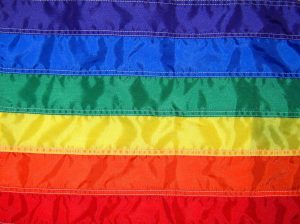In a disappointing move for supporters of LGBT civil rights, the U.S. Supreme Court turned down the opportunity to weigh an appeal by a security guard in Georgia who alleged she was harassed at work and ultimately forced to resign due to her sexuality. This refusal to hear the case means the court means there will be no review of federal law and interpretation as to whether laws against gender-based bias also protect lesbian, gay bisexual and transgender individuals for their sexual orientation. 
It also means that the ruling issued by the U.S. Court of Appeals for the 11th Circuit earlier this year. Had the highest court in the land chosen to review it, such a ruling might have settled the question that has been divided several lower courts: Does Title VII, banning gender discrimination, also protect people on the basis of their sexual orientation. Title VII does bar discrimination against workers based on religion, race, color and national origin, but makes no specific mention of sexual orientation. A number of states (including California) have enacted laws that protect LGBT workers, but at the federal level, there is no such guaranteed protection.
Five years ago, the U.S. Equal Employment Opportunity Commission, which enforces Title VII, began arguing that discrimination against LGBT employees is a violation of federal law. But that was a position taken under the Obama administration. This last summer, Trump administration officials argued the very opposite in the case of a skydiving instructor who lost his job after revealing to a customer he was gay. A ruling on that case is still pending.
In the more recent case, plaintiff was employed at a hospital in Savannah that served patients with psychiatric issues. She worked at the facility in 2012 and 2013. However, her supervisor allegedly began targeting her because of her sexual orientation. She was disciplined for wearing a male uniform and subjected to prodding and inappropriate questions regarding her personal relationships and sexual experiences. A junior employee was given a promotion instead of her, despite the fact she’d applied for it and was arguably more qualified. She also on one occasion alleged a door was physically slammed against her body.
She filed an LGBT discrimination lawsuit, alleging she was entitled to protections under Title VII for her identity as a lesbian. Her employment law attorneys argued that language in the U.S. Supreme Court’s landmark decision in 2015 that legalized same-gender marriage unions nationally was instructive. Specifically, the U.S. Supreme Court had state in its opinion that discrimination against LGBT individuals with regard to marriage “diminishes their personhood.”
The court gave no reason why it was declining to hear the case, but attorneys for the plaintiff say the refusal, while of course disappointing, did not mean the matter was closed. This was a “not yet,” not a flat-out “no” on deciding this issue, they say.
As our Los Angeles LGBT discrimination lawyers know, most people in the U.S. do believe LGBT workers should be treated fairly on-the-job – something that is true even if they believe one’s LGBT status is more the result of an immoral decision as opposed to an inherent identity.
Contact the employment attorneys at Nassiri Law Group, practicing in Orange County, Riverside and Los Angeles. Call 949.375.4734.
Additional Resources:
U.S. high court turns away dispute over gay worker protections, Dec. 11, 2017, By Andrew Chung, Reuters
Evans v. Georgia Regional Hospital, March 10, 2017, U.S. Court of Appeals for the 11th Circuit
More Blog Entries:
Constructive Discharge by Employers in Orange County, Nov. 7, 2017, LGBT Discrimination Lawyer Blog
 Orange County Employment Lawyers Blog
Orange County Employment Lawyers Blog

